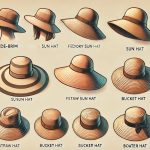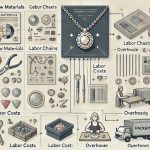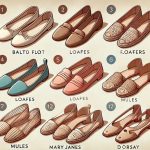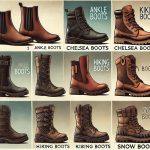Sweaters are a fundamental part of many wardrobes, known for their warmth, comfort, and style. They come in various designs, fabrics, and fits, catering to different needs and preferences. The production of sweaters involves several steps and materials, each contributing to the overall cost.
How Seaters are Produced
Sweaters are a staple in wardrobes around the world, providing warmth, comfort, and style. The production process of a sweater is a blend of traditional craftsmanship and modern technology, involving several stages from fiber selection to finishing.
Fiber Selection and Preparation
Before the production of a sweater begins, the first step is selecting the appropriate fiber. Sweaters can be made from a variety of fibers, both natural and synthetic.
Natural Fibers
Natural fibers such as wool, cotton, cashmere, and alpaca are popular choices for sweaters. Each of these fibers has unique properties. Wool, for instance, is known for its excellent insulation and moisture-wicking properties, making it ideal for cold climates. Cotton, on the other hand, is breathable and comfortable for milder weather.
Synthetic Fibers
Synthetic fibers like acrylic, polyester, and nylon are also used in sweater production. These fibers are often blended with natural fibers to enhance durability, elasticity, and ease of care. Synthetic fibers can mimic the texture and warmth of natural fibers at a lower cost.
Yarn Production
Once the fibers are selected, they are spun into yarn, which is the foundation of any sweater.
Spinning Process
The spinning process involves twisting the fibers together to create a continuous strand of yarn. This can be done using traditional spinning wheels or modern industrial machines. The thickness, or gauge, of the yarn is determined during this stage, which will later affect the texture and weight of the sweater.
Dyeing the Yarn
After spinning, the yarn may be dyed to achieve the desired color. Dyeing can be done before or after the yarn is spun, depending on the desired effect. In some cases, the yarn is left undyed, particularly if a natural or neutral color is desired.
Knitting the Sweater
Knitting is the core process of sweater production, where the yarn is transformed into fabric.
Hand Knitting
Hand knitting is a traditional method where skilled artisans use needles to interlock loops of yarn. This method is time-consuming but allows for intricate patterns and textures. Hand-knitted sweaters are often considered luxury items due to the labor-intensive process.
Machine Knitting
Machine knitting has largely replaced hand knitting in commercial production due to its efficiency. Flatbed knitting machines or circular knitting machines are used to produce large panels of fabric, which are then cut and sewn together. Machine knitting can produce a wide variety of patterns, from simple stockinette stitches to complex jacquard designs.
Assembly and Sewing
Once the fabric is knitted, the next step is to assemble the sweater.
Cutting the Fabric
If the sweater is being made from a large piece of knitted fabric, the fabric is cut into the necessary shapes for the front, back, and sleeves. Care is taken to ensure that patterns align and that the fabric is cut to the correct size.
Sewing the Pieces Together
The cut pieces are then sewn together using either hand sewing or industrial sewing machines. Seams are reinforced to ensure durability, and care is taken to match patterns and ensure that the garment fits properly. Special attention is given to attaching the sleeves, as this can affect the fit and comfort of the sweater.
Finishing Touches
After the sweater is assembled, it undergoes several finishing processes to enhance its appearance and functionality.
Washing and Blocking
The sweater is washed to remove any residues from the manufacturing process and to help the fibers relax. Blocking, which involves shaping the damp sweater and allowing it to dry, is used to ensure the sweater retains its shape.
Adding Details
Details such as buttons, zippers, and labels are added during this stage. If the sweater has a collar, cuffs, or hem, these are finished off to ensure they lie flat and look neat. Any loose threads are trimmed, and the sweater is inspected for quality.
Quality Control
Quality control is a crucial step in sweater production. Each sweater is carefully inspected to ensure it meets the desired standards.
Inspecting for Flaws
The sweater is checked for any knitting errors, such as dropped stitches, and for consistency in size and shape. Color consistency and pattern alignment are also scrutinized.
Final Adjustments
If any flaws are found, they are corrected at this stage. This could involve re-sewing seams, correcting minor knitting errors, or even remaking parts of the sweater. The goal is to ensure that each sweater is of the highest quality before it reaches the consumer.
Production Cost Distribution
The production cost of sweaters typically includes:
- Materials (40-50%): This includes the yarn or fabric (wool, cotton, cashmere, synthetic blends, etc.), threads, and trims.
- Labor (20-30%): Costs related to knitting, sewing, and assembling the sweaters.
- Manufacturing Overheads (10-15%): Includes costs for machinery, factory overheads, and quality control.
- Shipping and Logistics (5-10%): Costs associated with transporting raw materials and finished products.
- Marketing and Other Costs (5-10%): Includes marketing, packaging, and administrative expenses.
Types of Sweaters

1. Pullover Sweaters
Overview
Pullover sweaters are a classic type of sweater without any openings or fastenings. They are typically worn over the head and can come in various styles, including crew neck, V-neck, and turtleneck. Pullover sweaters are made from a variety of materials, such as wool, cotton, and synthetic blends, and are suitable for both casual and formal wear.
Popular Brands
| Brand | Established | Location |
|---|---|---|
| J.Crew | 1947 | New York, USA |
| Uniqlo | 1949 | Tokyo, Japan |
| Banana Republic | 1978 | San Francisco, USA |
| Ralph Lauren | 1967 | New York, USA |
| H&M | 1947 | Stockholm, Sweden |
Averaged Retail Price on Amazon
- $30 – $80
Market Popularity
Pullover sweaters are highly popular due to their simplicity and versatility. They are worn by people of all ages and can be styled for various occasions, from casual outings to business meetings.
Production Details
- White Label Production Cost in China: $10.00 – $20.00 per unit
- Product Weight: 300 – 500 grams
- Minimum Order Quantity: 500 units
- Major Materials: Wool, cotton, synthetic blends, buttons, zippers
2. Cardigan Sweaters
Overview
Cardigan sweaters feature an open front with buttons or a zipper for closure. They are versatile and can be worn open or closed, making them suitable for layering. Cardigans can be made from various materials, including wool, cotton, and synthetic blends, and come in different styles, such as long, cropped, and belted.
Popular Brands
| Brand | Established | Location |
|---|---|---|
| J.Crew | 1947 | New York, USA |
| Banana Republic | 1978 | San Francisco, USA |
| Ralph Lauren | 1967 | New York, USA |
| Brooks Brothers | 1818 | New York, USA |
| Uniqlo | 1949 | Tokyo, Japan |
Averaged Retail Price on Amazon
- $40 – $100
Market Popularity
Cardigan sweaters are popular for their versatility and ease of wear. They are a staple in many wardrobes and can be styled for both casual and formal occasions.
Production Details
- White Label Production Cost in China: $12.00 – $25.00 per unit
- Product Weight: 350 – 600 grams
- Minimum Order Quantity: 500 units
- Major Materials: Wool, cotton, synthetic blends, buttons, zippers
3. Turtleneck Sweaters
Overview
Turtleneck sweaters feature a high, close-fitting collar that covers most of the neck. They are known for their warmth and classic style, making them suitable for cold weather and various occasions. Turtleneck sweaters can be made from materials like wool, cotton, and cashmere.
Popular Brands
| Brand | Established | Location |
|---|---|---|
| Ralph Lauren | 1967 | New York, USA |
| J.Crew | 1947 | New York, USA |
| Uniqlo | 1949 | Tokyo, Japan |
| Banana Republic | 1978 | San Francisco, USA |
| H&M | 1947 | Stockholm, Sweden |
Averaged Retail Price on Amazon
- $40 – $90
Market Popularity
Turtleneck sweaters are highly popular in regions with cold climates and among those who appreciate a sophisticated, classic look. They are often worn for both casual and formal occasions.
Production Details
- White Label Production Cost in China: $12.00 – $25.00 per unit
- Product Weight: 300 – 500 grams
- Minimum Order Quantity: 500 units
- Major Materials: Wool, cotton, cashmere, synthetic blends
4. V-Neck Sweaters
Overview
V-neck sweaters are characterized by a V-shaped neckline, offering a versatile and stylish option for layering over shirts and blouses. They are suitable for both casual and formal occasions and can be made from materials such as wool, cotton, and synthetic blends.
Popular Brands
| Brand | Established | Location |
|---|---|---|
| Ralph Lauren | 1967 | New York, USA |
| J.Crew | 1947 | New York, USA |
| Banana Republic | 1978 | San Francisco, USA |
| Brooks Brothers | 1818 | New York, USA |
| H&M | 1947 | Stockholm, Sweden |
Averaged Retail Price on Amazon
- $30 – $80
Market Popularity
V-neck sweaters are popular for their versatility and stylish appearance. They are often worn in professional settings as well as for casual outings.
Production Details
- White Label Production Cost in China: $10.00 – $20.00 per unit
- Product Weight: 300 – 500 grams
- Minimum Order Quantity: 500 units
- Major Materials: Wool, cotton, synthetic blends
5. Crew Neck Sweaters
Overview
Crew neck sweaters feature a round neckline that sits at the base of the neck. They are a classic and versatile option, suitable for both casual and formal wear. Crew neck sweaters can be made from various materials, including wool, cotton, and synthetic blends.
Popular Brands
| Brand | Established | Location |
|---|---|---|
| J.Crew | 1947 | New York, USA |
| Uniqlo | 1949 | Tokyo, Japan |
| Ralph Lauren | 1967 | New York, USA |
| Banana Republic | 1978 | San Francisco, USA |
| H&M | 1947 | Stockholm, Sweden |
Averaged Retail Price on Amazon
- $30 – $70
Market Popularity
Crew neck sweaters are highly popular due to their simplicity and versatility. They are a staple in many wardrobes and can be styled for various occasions.
Production Details
- White Label Production Cost in China: $10.00 – $20.00 per unit
- Product Weight: 300 – 500 grams
- Minimum Order Quantity: 500 units
- Major Materials: Wool, cotton, synthetic blends
6. Cashmere Sweaters
Overview
Cashmere sweaters are made from the fine, soft wool of cashmere goats. They are known for their luxurious feel, warmth, and lightweight properties. Cashmere sweaters are a premium option, often associated with high-end fashion and luxury.
Popular Brands
| Brand | Established | Location |
|---|---|---|
| J.Crew | 1947 | New York, USA |
| Ralph Lauren | 1967 | New York, USA |
| Loro Piana | 1924 | Quarona, Italy |
| Uniqlo | 1949 | Tokyo, Japan |
| Everlane | 2010 | San Francisco, USA |
Averaged Retail Price on Amazon
- $100 – $300
Market Popularity
Cashmere sweaters are highly popular among those who appreciate luxury and quality. They are often worn for special occasions and as part of high-end fashion.
Production Details
- White Label Production Cost in China: $30.00 – $60.00 per unit
- Product Weight: 200 – 400 grams
- Minimum Order Quantity: 500 units
- Major Materials: Cashmere wool
7. Chunky Knit Sweaters
Overview
Chunky knit sweaters are made from thick yarn, providing a cozy and warm option for cold weather. They often feature textured patterns such as cables and braids, adding visual interest. Chunky knit sweaters are typically casual and perfect for winter wear.
Popular Brands
| Brand | Established | Location |
|---|---|---|
| Free People | 1984 | Philadelphia, USA |
| Zara | 1974 | Arteixo, Spain |
| H&M | 1947 | Stockholm, Sweden |
| Anthropologie | 1992 | Philadelphia, USA |
| Madewell | 1937 | New York, USA |
Averaged Retail Price on Amazon
- $40 – $100
Market Popularity
Chunky knit sweaters are highly popular in colder regions and among those who appreciate a cozy, casual look. They are often worn for casual outings and lounging.
Production Details
- White Label Production Cost in China: $15.00 – $30.00 per unit
- Product Weight: 400 – 700 grams
- Minimum Order Quantity: 500 units
- Major Materials: Wool, synthetic blends, thick yarn
8. Sweater Vests
Overview
Sweater vests are sleeveless sweaters that can be worn over shirts or blouses. They are popular for layering and adding a touch of warmth and style to an outfit. Sweater vests can be made from materials such as wool, cotton, and synthetic blends.
Popular Brands
| Brand | Established | Location |
|---|---|---|
| J.Crew | 1947 | New York, USA |
| Brooks Brothers | 1818 | New York, USA |
| Ralph Lauren | 1967 | New York, USA |
| Banana Republic | 1978 | San Francisco, USA |
| Uniqlo | 1949 | Tokyo, Japan |
Averaged Retail Price on Amazon
- $30 – $70
Market Popularity
Sweater vests are popular for their versatility and classic style. They are often worn in professional settings and as part of casual outfits.
Production Details
- White Label Production Cost in China: $8.00 – $15.00 per unit
- Product Weight: 200 – 300 grams
- Minimum Order Quantity: 500 units
- Major Materials: Wool, cotton, synthetic blends
9. Hooded Sweaters
Overview
Hooded sweaters combine the features of a hoodie and a sweater, providing warmth and style. They are typically casual and can be made from materials like wool, cotton, and synthetic blends. Hooded sweaters are popular for their practicality and comfort.
Popular Brands
| Brand | Established | Location |
|---|---|---|
| Patagonia | 1973 | Ventura, USA |
| The North Face | 1968 | San Francisco, USA |
| Columbia Sportswear | 1938 | Portland, USA |
| H&M | 1947 | Stockholm, Sweden |
| Uniqlo | 1949 | Tokyo, Japan |
Averaged Retail Price on Amazon
- $40 – $90
Market Popularity
Hooded sweaters are highly popular for their casual and practical style. They are often worn for outdoor activities and casual outings.
Production Details
- White Label Production Cost in China: $12.00 – $25.00 per unit
- Product Weight: 350 – 600 grams
- Minimum Order Quantity: 500 units
- Major Materials: Wool, cotton, synthetic blends, zippers, drawstrings








